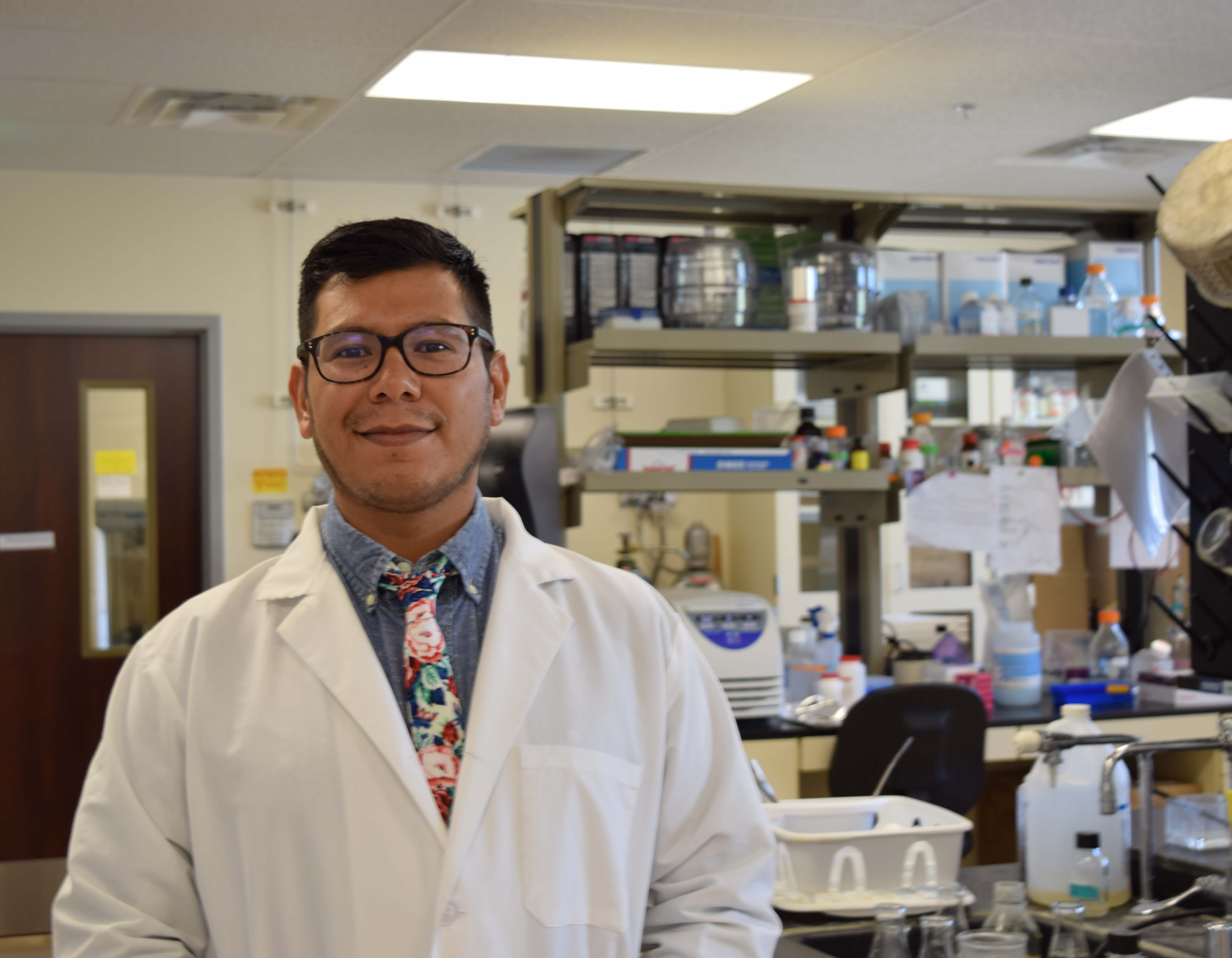Preparing for Disaster: UNM Hospital Participates in Region-Wide Emergency Training

Gut Check
UNM Researchers Find Microplastics in Food and Water Alter the Immune System
Scientists estimate that each week we swallow 5 grams of tiny plastic particles that have found their way into our food and water supplies – equivalent to the weight of a credit card.
A team of University of New Mexico researchers is exploring whether the presence of these microplastics in the body affects the immune system and how they might trigger inflammatory bowel disease (IBD) and other ailments.
They focused on the gut, home to trillions of micro-organisms, many of which are beneficial for digestion and other functions, but some of which are harmful if they escape into the body. A single layer of epithelial cells serves as a barrier to prevent that from happening.
The immune system provides additional protection in the form of macrophages – specialized cells that swallow and digest bits of foreign material in the body.
“If something crosses the barrier that doesn’t need to cross, macrophages go there and engulf them,” explains immunologist Eliseo Castillo, PhD, an assistant professor in the UNM Division of Gastroenterology & Hepatology, who helped lead the study.
In a paper published in the journal Cell Biology & Toxicology, Castillo and his colleagues found that when macrophages encountered and ingested 10-micron spheres of polystyrene, their function was altered and they released inflammatory molecules.

It is changing the metabolism of the cells, which can alter inflammatory responses
“It is changing the metabolism of the cells, which can alter inflammatory responses,” Castillo says. “During intestinal inflammation – states of chronic illness such as ulcerative colitis and Crohn’s disease, both forms of IBD – these macrophages become more inflammatory and they’re more abundant in the gut.”
The multitude of cell types in the gut are all interconnected, he says. “If you perturb any one of them you can perturb all of them. If we’re constantly ingesting microplastics you can see how this can start to affect not only the gut but the rest of the immune system.”
Microplastics, which are also found floating in the air, are unlike anything the immune system has encountered over millions of years of evolution, and the macrophages have difficulty digesting them, Castillo says.
In the course of the study, the scientists saw that the particles remained within the macrophages. “What we have observed is they are no longer 10-micron size, he says. “They may be breaking up, but they were not degraded within our (study) time frame.”
Matthew Campen, PhD, a professor in the UNM Department of Pharmaceutical Sciences who was a co-author on the paper, adds, “Our immune systems didn’t evolve to deal with this, so there’s a possibility this is reprogramming our immune system to make us more vulnerable to autoimmune conditions,” he said.

It’s clearly ubiquitous... We’re kind of looking at the tip of the iceberg with regard to plastics waste that we’ve generated.
The sheer volume of plastics that are present in the environment is concerning. Campen recounts that his children found microplastics in a water sample taken for a school science project near the headwaters of the Rio Grande in Colorado.
“It’s clearly ubiquitous,” he says. While people might not be keeling not over from plastics exposure, the incidence of autoimmune disease has skyrocketed. “We’re kind of looking at the tip of the iceberg with regard to plastics waste that we’ve generated.”
An additional concern, Campen adds, is that dangerous microbes or toxic chemicals might hitch a ride on microplastic particles and find their way into the body. That is true both in the gut and in the lungs, where macrophages serve a similar protective function.
Worse still, not all plastics are alike. Exposure to the ultraviolet radiation in sunlight degrades the surface of plastic particles, leading to the release of toxic chemical compounds, Campen says. While chemists have developed biodegradable plastics that break down in the environment, that might be problematic in itself.
“Eliseo started studying biodegradable plastics,” Campen says. “His early data suggested they might be even more toxic. We’re trying to push for companies to consider what degradation products will be most viable, not just for humans but for whole ecosystems.”